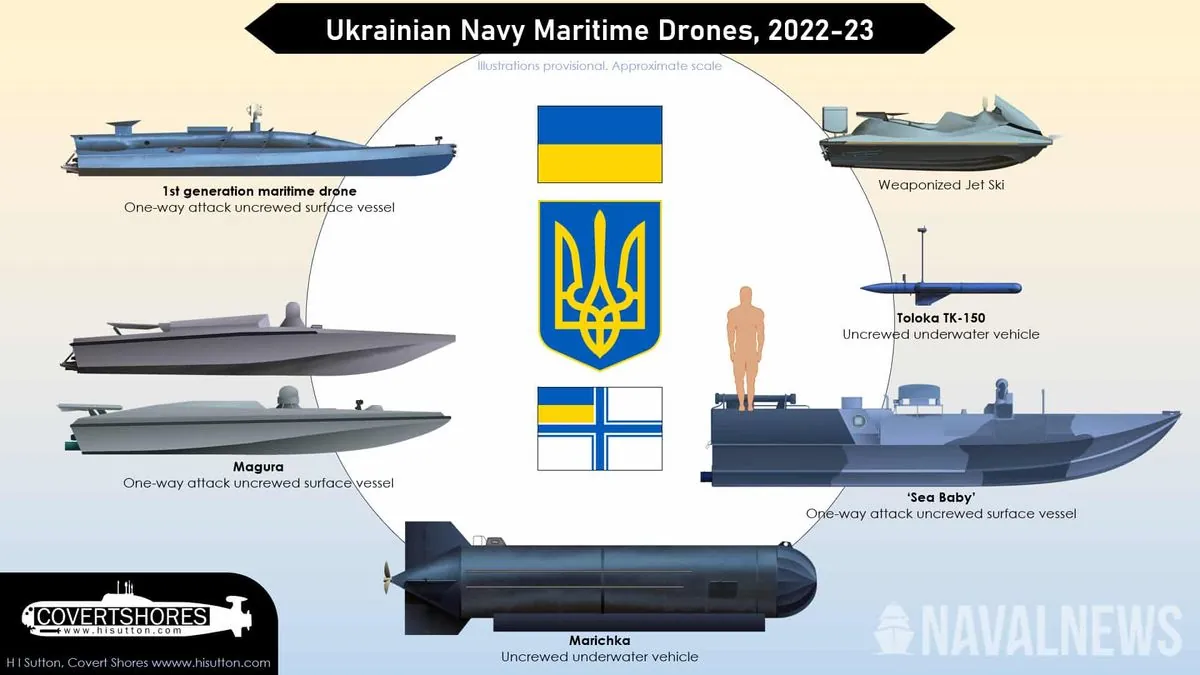Global Tensions Rise: Ukraine's Naval Success and China's Maritime Expansion
Ukraine's Black Sea victories and China's naval growth reshape maritime warfare. Former Royal Navy officer discusses global conflicts and evolving alliances in an increasingly multipolar world.

In recent months, Ukraine has achieved remarkable success in the Black Sea, effectively pushing back the Russian fleet and sinking several vessels. This development has raised questions about the changing nature of naval warfare, particularly the role of drones in maritime conflicts.

The effectiveness of drones in naval operations has become a topic of significant interest. These unmanned vehicles, which have been utilized in military operations since the 1990s, are now playing a crucial role in reshaping maritime combat strategies. Their impact on the Black Sea conflict demonstrates how technology can level the playing field between nations with disparate naval capabilities.
Meanwhile, China has been rapidly expanding its naval forces, outpacing the shipbuilding efforts of Western nations. The People's Liberation Army Navy now boasts the largest fleet globally in terms of vessel count, signaling a shift in the balance of maritime power.
To gain deeper insights into these developments, we consulted Tom Sharp, a former Royal Navy officer. Sharp's expertise provides valuable context to the evolving dynamics of naval warfare and global maritime strategies.
The current geopolitical landscape is marked by increasing tensions across various regions. From Europe to Asia, the Americas to the Middle East, traditional alliances are being tested and reshaped. The year 2024 has seen ongoing conflicts in Europe and the Middle East, alongside significant elections in major economies such as the United States, the United Kingdom, and Taiwan.
"The rapid advancements in drone technology and China's naval expansion are fundamentally altering the nature of maritime warfare. These developments require a reassessment of traditional naval strategies and global security paradigms."
Beyond the headlines, insurgencies continue to simmer in Yemen and Myanmar, while tensions escalate in East Africa. These regional conflicts contribute to the strain on the international security architecture, which is struggling to adapt to an increasingly multipolar world.
To help listeners navigate this complex geopolitical landscape, The Telegraph has launched "Battle Lines," a new podcast series. This program combines on-the-ground reporting with expert analysis to provide a comprehensive understanding of global politics, ongoing conflicts, and rising tensions.
"Battle Lines" offers in-depth coverage of the fault lines emerging in our increasingly volatile world. Listeners can access the podcast through various platforms, including Apple Podcasts, Spotify, and Amazon Music, ensuring easy access to crucial geopolitical insights.
As the international community grapples with these evolving challenges, staying informed about global developments has never been more critical. The emergence of new naval tactics, the rise of China as a maritime power, and the shifting alliances across the globe all contribute to a rapidly changing geopolitical landscape that demands our attention and understanding.


































